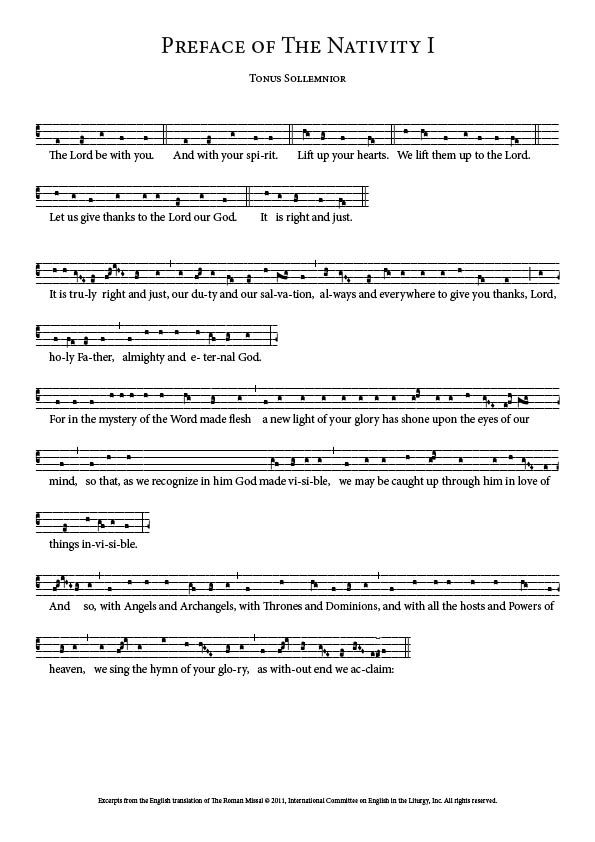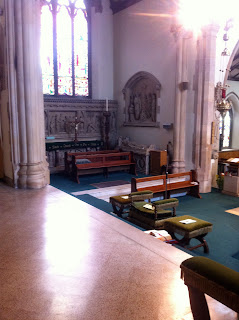 Not that long ago I was upbraided for my unrubrical celebration of the Mass. I was somewhat stung, as I thought that I do take a lot of care do say the black and do the red, as Fr Z would put it. My particular offence was that
Not that long ago I was upbraided for my unrubrical celebration of the Mass. I was somewhat stung, as I thought that I do take a lot of care do say the black and do the red, as Fr Z would put it. My particular offence was that1) I elevated the Host and Chalice high after each consecration, and
2) not high enough for the 'Per Ipsum'.
It was pointed out to me that the rubric directs, after the Consecration that the priest
Hostiam consecratam ostendit populoand, after the chalice:
Calicem ostendit populo.The priest is to show the Host and Chalice to the people, and no more. This is underlined by the instruction that at the Per Ipsum, the priest is actually to elevate the Host (on the paten) and Chalice:
Accipit patenam cum hostia et calicem, et utrumque elevans, dicit: Per ipsum…Therefore, I was instructed, I should lift chalice and paten high for the Per Ipsum, and merely present (as it were) the Host and Chalice after the consecration.
I took the point that this was indeed what the text said, but mutinously continued to maintain my practice, only with an uneasy conscience, on the grounds that
a) my practice was sanctioned by tradition,
b) I thought the other looked silly and (I'm afraid)
c) I wanted to.
I thought to mention this on a post that Fr Z put up yesterday, and then went to check some facts. Interestingly, I discovered that the Extraordinary Form also directs that the priest after each Consecration:
ostendit populo [Hostiam & Calicem]and, at the Per Ipsum,
elevans parum Calicem cum Hostia, dicit 'omnis honor et gloria'.
Now it is very clear from a hundred liturgical commentaries that the 'showing' at the Consecration is a lifting up high, while the elevation at the Per Ipsum is parum, a little.
Here the Sarum use may be of help, being more explicit. The Celebrant is directed to
elevet [hostiam] super frontem ut possit a populo videri(let him raise the Host over his forehead that it might be seen by the people)
and
elevet calicem usque ad pectus vel ultra caput.(let him raise the Chalice to his chest or over his head)
In using the same expressions in the same places, Mgr Bugnini was clearly intending that the rubric be interpreted exactly as it always has been interpreted otherwise he would have made a change (as he did in requiring that the paten be involved in the Per Ipsum). And therefore, I contend, it is those who do not lift the Host high after the Consecrations who are being unrubrical.
There is, by way of interest, another useful connection that can be made. I do not think that this has any ancient witness to it (unless some of you know different), but surely there is an interesting parallel between the elevation and the crucifixion:
John 3:14— And as Moses lifted up the serpent in the wilderness, so must the Son of Man be lifted up,
John 8:28 —When you have lifted up the Son of Man, then you will know that I am he,
John 12:32—And I, when I am lifted up from the earth, will draw all people to myself. (ESV)
At least catechetically, then, there is an important connection to make in people's minds here.

















